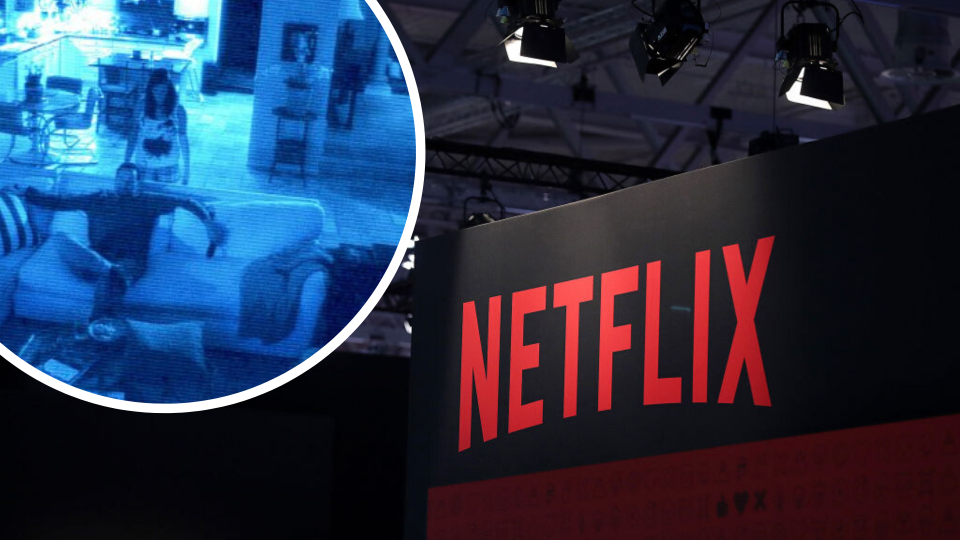Aussie startup’s huge bet in Netflix era

It’s an undeniably interesting question: when Netflix, Disney+, AppleTV+ and Amazon achieve market saturation, what’s the next stage of the streaming wars?
For Aussie startup Reel House Productions, the answer is cost-cutting. Once the land has been grabbed, the streaming giants will turn their focus to creating great content, but without the massive price tags attached to flagship shows like The Crown and Marco Polo.
Related story: Netflix freeloaders could be forced to pay their way
Related story: Netflix's Aussie price hike could see it lose thousands of subscribers
Related story: Disney blasts into streaming zone with Disney+ revelations
The team, which has 150 years movie experience between them, believes that by using an equity crowdfunded model through Birchal and efficient film-making practices, it can cut the production costs by 80 per cent, and claim a portion of the billion dollar streaming pie.
According to research firm Ampere Analysis, revenue from the video streaming market will surpass theatrical revenue in 2019. And according to PricewaterhouseCoopers, the video streaming market will jump to US$30.6 billion by 2022.
Modelling itself off US production companies like Blumhouse Productions which makes blockbuster horror films on a tiny budget, the production team expects revenue returns from its slate of films to be in the vicinity of 230 per cent for action, 250 per cent for horror, 230 per cent for crime thriller and 200 per cent for documentary.

“We think once the market reaches saturation, over the course of the next decade it will become a cost control story [for the streamers],” Reel House Productions partner Jay Grant told Yahoo Finance.
“And what we provide to companies is an elegant solution in terms of being an independent company that's not exclusive to any one of these platforms, that's providing an independent vault of very affordable content that is genre driven.”
We went to the Disney+ launch in LA: And the chief creative officer, Alan Horn, took aim at Netflix
Attendees spent thousands: The costumes at the launch were amazingly detailed, and incredibly expensive. But the attendees reckon it’s worth it
Now, Disney+ is just days from coming to Australia: Here’s when it will land
Reel House will produce and sell a slate of six to eight movies on a rolling 12-month cycle, and will cut costs by using the same filming locations (and attached rebates) and crew. The company plans to keep budgets at an average $2 million.
“Guys that have been making independent shows, movies and selling them for the better part of 30 years understand how to control budgets, understand now how much money can be put onto the screen and where the leakage occurs in production budgets,” Grant said.
“A lot of the discussions we had were around what a production calendar looks like through the year. When you're making six films in a 12 month period, there's a lot of opportunities for the continuous flow of production.
“It takes out a lot of those stop-start costs that you have. You can shoot films back to back. You can shoot one of your horror films off the back of one of your action films, in the same city, in the same rebates, using the same crew. And you might end up doing a 60-day shoot knocking at two films rather than spreading it out over months.”
Reel House Productions is aiming to kick off production in June next year, but Grant believes that the most exciting element is how - if successful - this production model can shift the relationship between filmmakers, shareholders and viewers.
“We're really testing this proposition that ... your audience will also be your shareholders. The reason we've gone to crowdfunding initially is to really raise the word.
“We want to build shareholders, yes, but those shareholders become automatic audience members and they provide us with the feedback loop into our work. And that really makes a nice golden circle for us as a production company to understand where our audience is at and what they're after.”

And ultimately, this model could be something others could adopt, and reduce the reliance on government filmmaking, especially in Australia.
“I really think that we can prove our model here that others can adopt and we hope will follow in behind us.”
“That's the big picture for us, and if we're successful in doing that then we'll be very happy to have opened that door that others can come in behind us.
Make your money work with Yahoo Finance’s daily newsletter. Sign up here and stay on top of the latest money, property and tech news.

 Yahoo Finance
Yahoo Finance 
